
The finance ministry on Saturday denied that there had been any delay in the decision-making process regarding wheat procurement targets.
“News stories appearing in a section of the press have given the misleading impression that the Economic Coordination of the Committee (ECC) of the cabinet has delayed the decision on wheat procurement targets. There is no truth to these assertions,” the ministry said in a statement issue.
The ministry’s clarification came after the media reported that the ECC had failed to approve a clear-cut cash credit limit to the provinces and other stakeholders for wheat procurement despite two days (April 4 and April 5) of lengthy meetings.
The ECC’s approval of the cash credit limits for the provinces and federal agencies is necessary to raise funds from the financial sector and the State Bank to keep a cap on public loans and guarantees.
The ministry in the statement said the ECC had discussed the matter related to the wheat procurement in its meetings held on April 4 and after considering the views of the relevant federal ministries, the members of the ECC felt that it would be advisable to include the provincial governments in the deliberations, as they would be responsible to implement the decisions on the ground.
The meeting was, therefore, reconvened on April 5, and representatives of all the provincial governments participated, provided updates to the committee on the latest situation relating to procurement of wheat in their respective areas and apprised it of their requirements for bank credit for the purpose, the statement added.
The committee after detailed deliberations approved the procurement target proposed by the Ministry of Food Security and the provinces and the cash credit limits required for the purpose, the statement read.
The ECC had approved about Rs275 billion cash credit limit for wheat operations of smaller stakeholders to ensure procurement of 2.45 million tonnes in the public sector. This, however, did not include the largest producer and stakeholder, Punjab, that last year procured 4.5 million tonnes alone — almost more than double the procurement by all other participants. This time around, the province neither committed any procurement target nor sought a cash credit limit.
Of the total 2.45 million procurement targets with Rs274.7 billion credit requirement, Passco -- the country’s agency responsible for maintaining strategic food stocks -- would pick 1.4 million tonnes from farmers with a credit limit of Rs169 billion, followed by one million tonnes by Sindh worth Rs100 billion and 50,000 tonnes by Balochistan with Rs5.7 billion.
This apparently meant the bumper wheat output, with projections safely surpassing 28 million tonnes, and some estimates even pointing towards a record 29 million tonnes, had put the farmers in a difficult position and being exploited by financially strong market forces.
The ECC had approved about Rs200 billion cash credit limit to the Sindh government, half of that for the procurement of about one million tonnes of wheat and the remaining half for past rollovers. Another official explained that the fresh approval of Rs100 billion was only for one million out of fresh crop.
Punjab had declined to seek credit limit, stressing that it would intervene when it finds reasonable evidence about the farmers being fleeced and to come to their aid for official stocks at the approved wheat support price.
The finance ministry’s statement said that the relevant departments did not suggest any enhancement or reduction in targets presented by the Ministry of Food Security, neither did the ECC approve any such change.
The Punjab government informed the committee that it was closely monitoring the wheat situation in the province and had initiated procurement process. They further informed the meeting that the provincial government would continue to intervene to make sure that the farmers are able to sell their produce at the support price level.















1716317526-0/chai11625120798-2-(1)1716317526-0-270x192.webp)


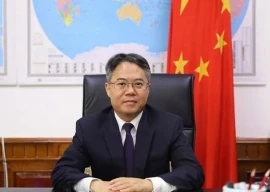
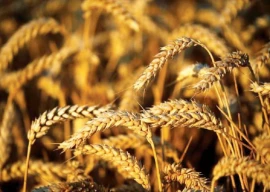
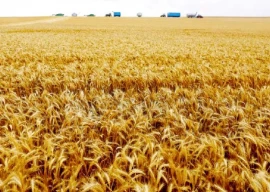
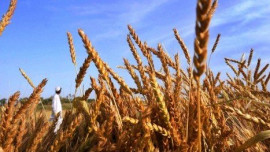



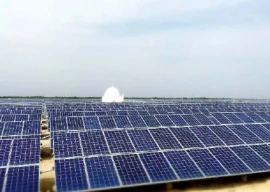








COMMENTS
Comments are moderated and generally will be posted if they are on-topic and not abusive.
For more information, please see our Comments FAQ